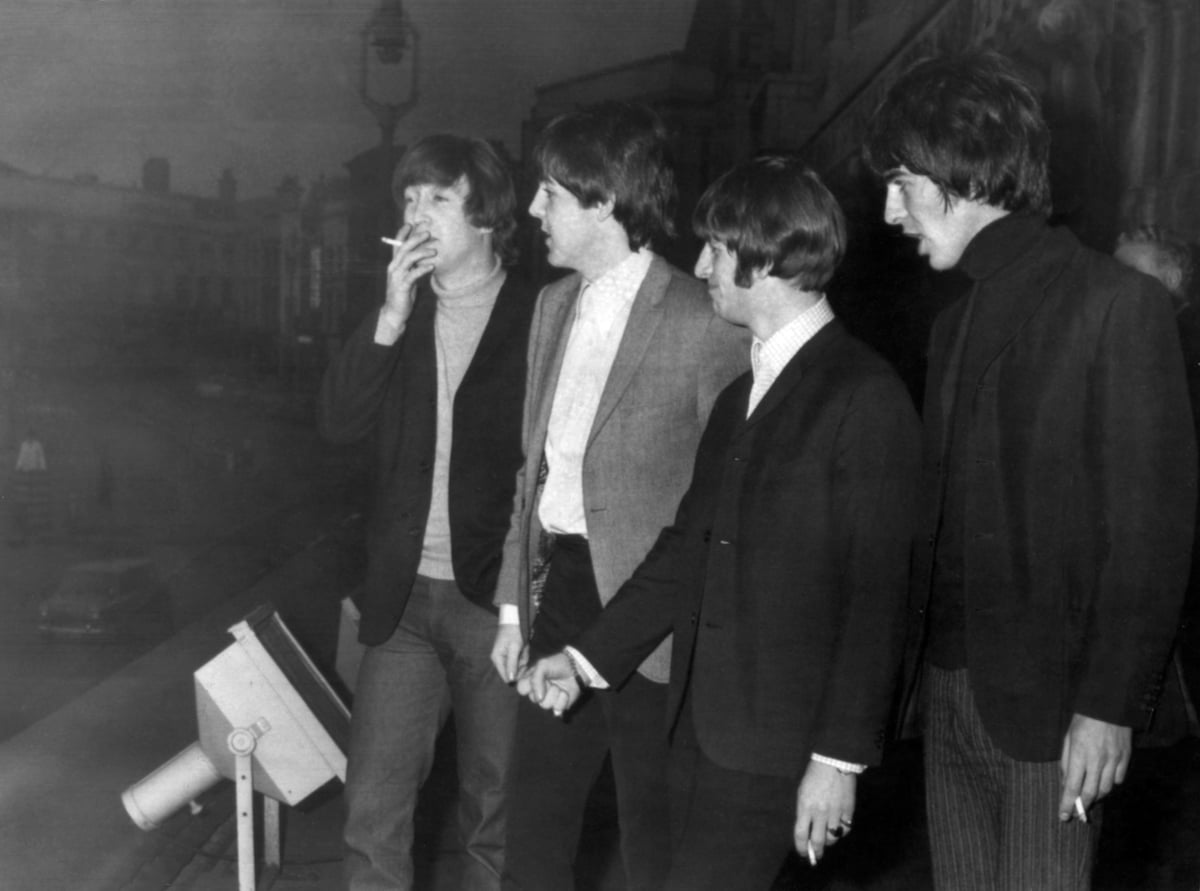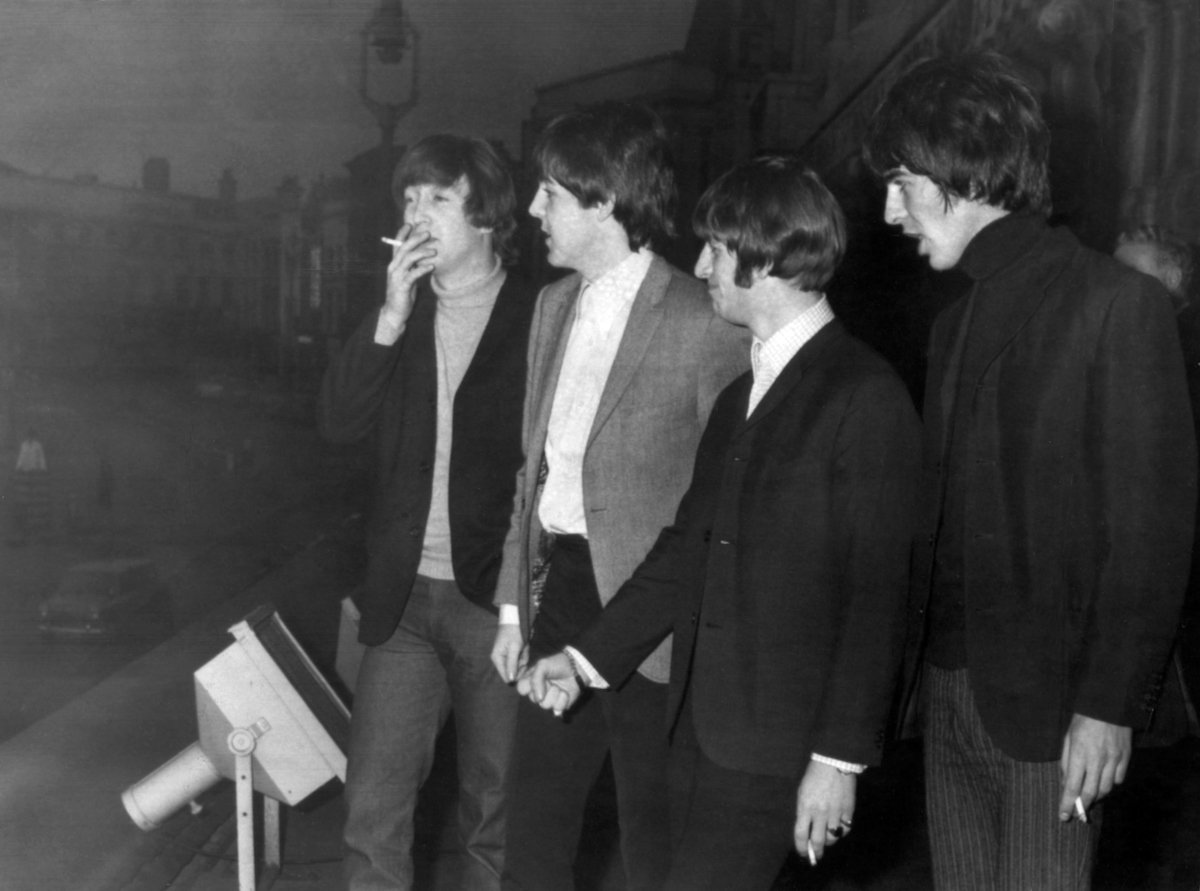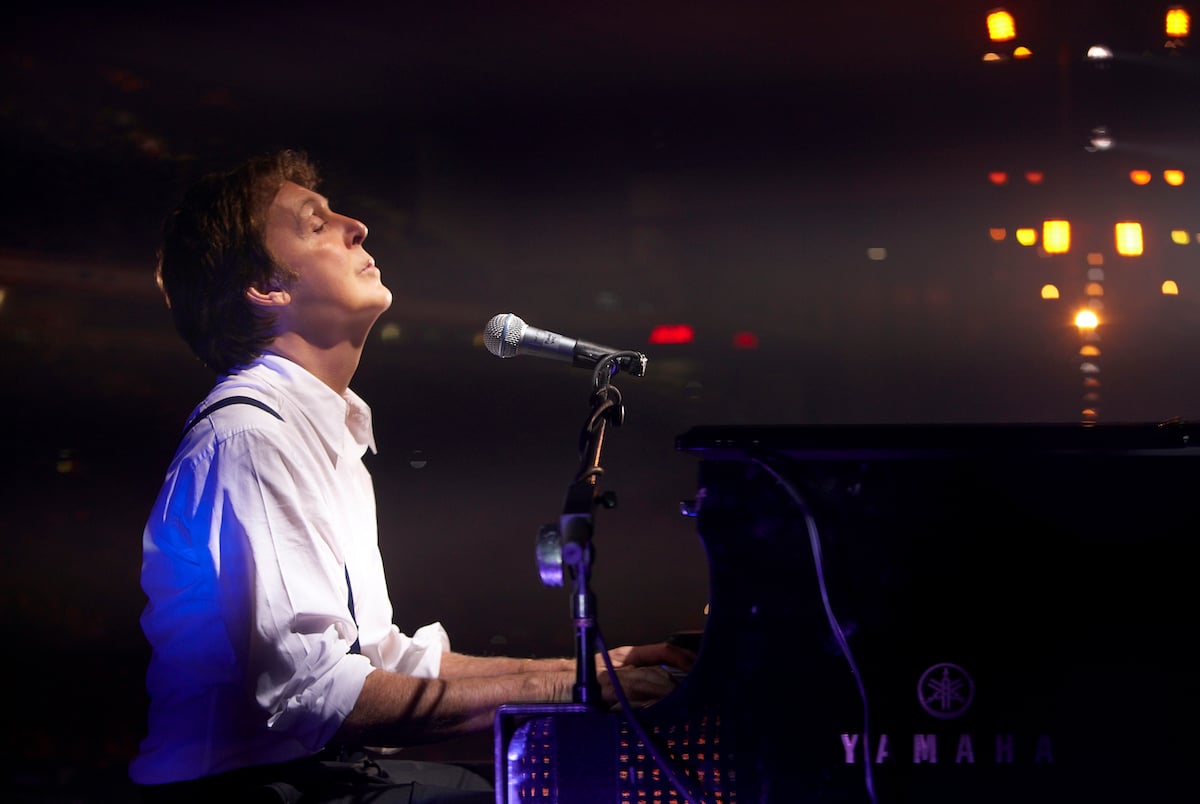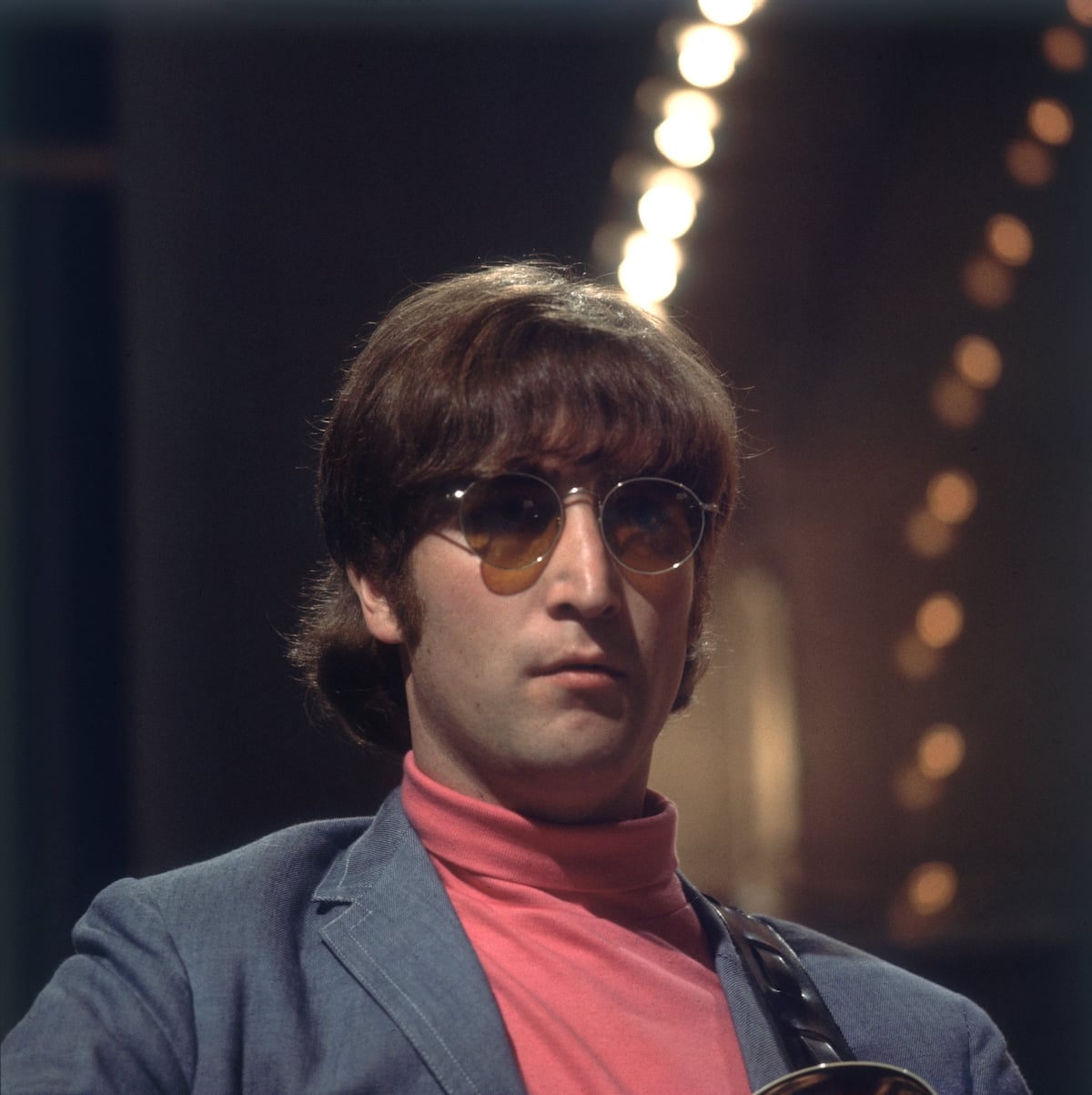
The Beatles: ‘A Hard Day’s Night’ Producer Tried to Stop the Band From Smoking in the Movie
The Beatles performed to screaming fans in concert. You can see those fans in the audience of their Ed Sullivan Show performance too. Their first film, A Hard Day’s Night, showcased the fanfare that followed The Beatles even in their daily life. It also chronicled some of their bad habits, like smoking.

The Criterion Collection edition of A Hard Day’s Night includes several documentaries about the making of the film. In one, producer Walter Shenson speaks about his efforts to stop The Beatles from smoking on film. He wasn’t entirely successful.
‘A Hard Day’s Night’ producer didn’t want The Beatles fans to see them smoke
A Hard Day’s Night came out in 1964. By this time, The Beatles’ following had crossed the pond, as it were, since they’d performed on Ed Sullivan at the beginning of the year. Shenson felt that The Beatles should be role models to their young fans.
“I was aware that the audience for our picture was young people, children and the Beatles were their idols,” Shenson said. “So I sneaked around them, every time the camera started to roll, and took the cigarette out of their hands. When the director said cut, I handed the cigarette back.”
There are still cigarettes in the movie
John Lennon, Paul McCartney, Ringo Starr and George Harrison were all smokers. A Hard Day’s Night still has many shots of them lighting each other’s cigarettes and taking drags. Those were the times Shenson wasn’t quick enough.
“I didn’t get it all out but there was a lot more smoking on the set than you saw in the film,” Shenson said.
Walter Shenson wasn’t a Beatle fan before ‘A Hard Day’s Night’
Shenson didn’t come to A Hard Day’s Night as a Beatles fan. It was just a job to him at first.
“I was living and producing films in London when United Artists asked me if I would make a film with The Beatles,” Shenson said. “This was in Fall of 1963. Being a generation older than the Beatles and not necessarily a Beatles fan, I said, ‘You mean those young men with the long hair and the guitars?’ They said yes. I said, ‘Well, why would you want a film with them?’”
UA appealed to Shenson’s entrepreneurial instincts. After making A Hard Day’s Night, Shenson would say The Beatles had undeniable screen presence.
“They said, ‘Well, our record company, United Artists Records, would then get a soundtrack album if we made a film. We need a film for the express purpose of having a soundtrack album,’” Shenson said. “And I thought that was a noble enough reason for them to finance a film and I said, ‘Yes, I‘d be delighted to do it.’ They said, ‘Just make sure there are enough new songs from The Beatles for an album and don’t go over budget.’”




